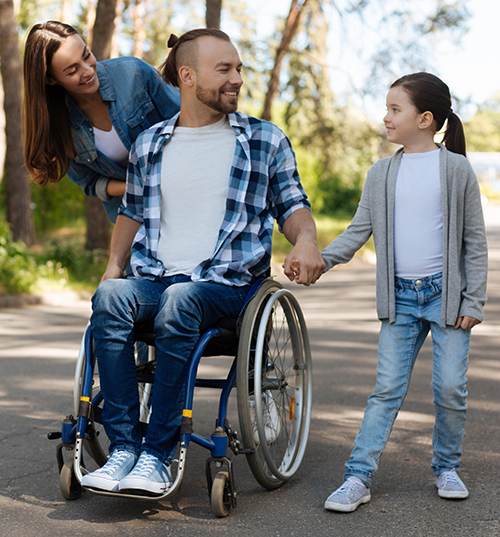IDEAL RRTC Grant Application Guide

We are no longer accepting applications.
The primary goal of this program is to facilitate the development or expansion of community programs, following the needs, concerns, and strengths of adults with physical disabilities. IDEAL RRTC staff is available to assist community organizations in developing grant-writing skills to support the long-term sustainability of those programs. We are looking to create and promote partnerships between University of Michigan researchers and community organizations in racially/ethnically, socioeconomically, and/or LGBTQIA+ marginalized communities in southeastern Michigan.
IDEAL RRTC Community Grants are supported with funding provided to the IDEAL RRTC from the National Institute on Disability, Independent Living, and Rehabilitation Research (NIDILRR grant number 90RTHF0001). NIDILRR is a Center within the Administration for Community Living (ACL), Department of Health and Human Services (HHS). The contents of this project do not necessarily represent the policy of NIDILRR, ACL, or HHS, and you should not assume endorsement by the Federal Government.
Application Quick Links
Program Eligibility Criteria
Organizations must be:
- Operating from or providing services and/or programming in socioeconomically, racially/ethnically, and/or LGBTQIA+ marginalized communities in southeastern Michigan
- Nonprofit organizations (can include church / religious organizations)
Grants will not be provided to individuals; however, individuals with ideas are encouraged to contact and see about partnering with community organizations.
Potential Project Area
- Access to telehealth / healthcare (e.g., providing devices, hotspots, training)
- Providing practical support (food, computer access)
- Enhancing attitudinal environments
- Reducing isolation / enhancing social and emotional support
- Housing
- Caregiving
Projects can encompass the following stages (but are not limited to):
- Expanding an existing program
- Creating a new program
- Conducting activities at any stage of program development:
- Preplanning / data collection
- Implementation
Important Program Dates
Information Session (Zoom Meeting)
Deadline for Submission: 11:59 pm Eastern time on Monday, October 31, 2022
Award Notification Date: Monday, November 14, 2022
Award Start Date: No earlier than Monday, January 2, 2023
Quarterly Reporting Deadlines (Reporting guidelines to be provided):
- April 1, 2023: Brief report
- July 1, 2023: Brief report
- October 1, 2023: Brief report
- January 3, 2024: Comprehensive final report
Funding Details
How Funds Can be Used
Priority will be given to projects with a plan for sustainability.
Please note that, for the purposes of this grant, “aging with disability” does not refer exclusively to older adults but is related to living (and aging) with a permanent physical disability / impairment.
There is no limit on the percentage of funds that can be used for any specific budget items; however, the justification for using funds must be consistent with the project activities and needs as described in the application. Funds can be budgeted for any or all of the following:
- Personnel time
- Software / computers
- Rental or purchase of equipment or building
- Renovations of new or existing spaces
- Hosting
- Other types of activities
Limitations on Use of Funds
- Due to federal regulations, the use of funds for lobbying is not allowed.
- Use of funds may also be restricted based on regulations from the University of Michigan and / or local, state, and federal laws and regulations.
